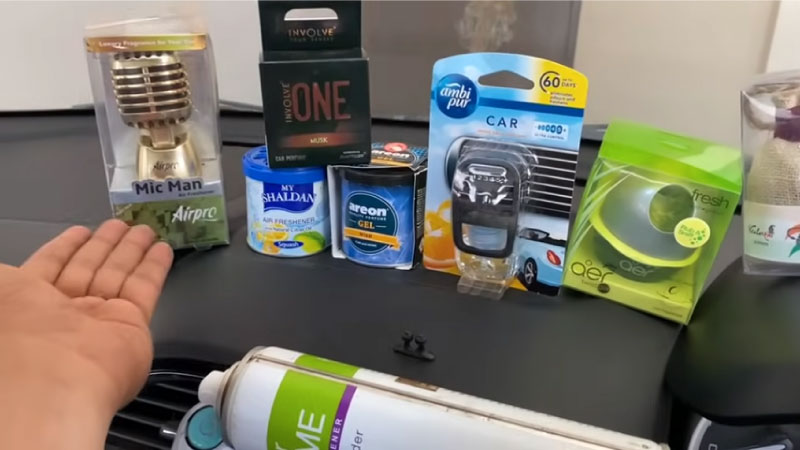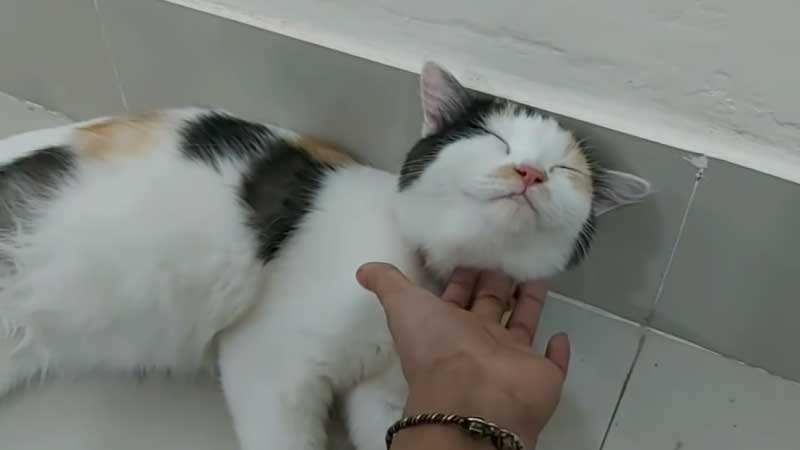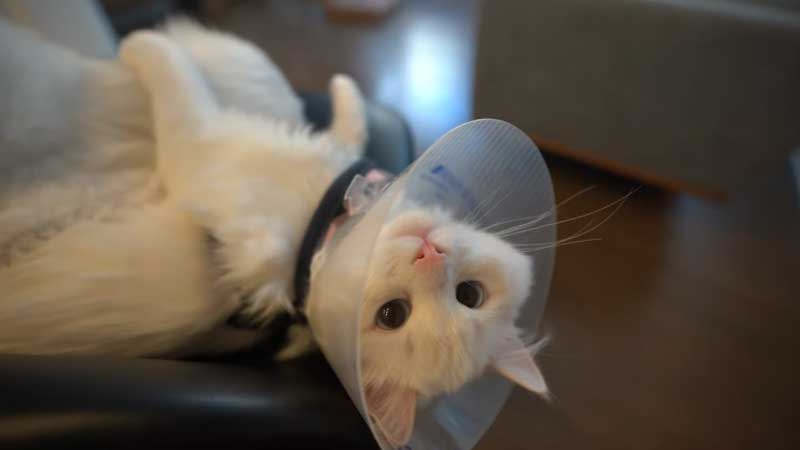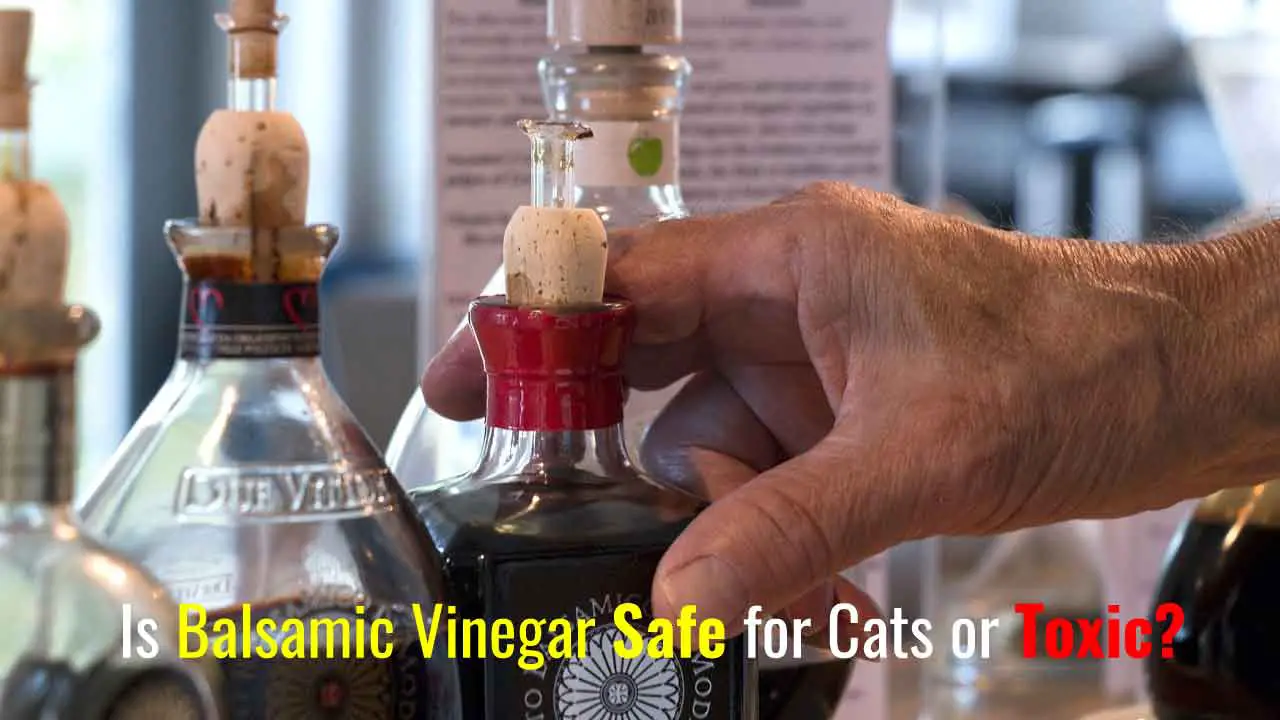People use air fresheners in their homes, cars, offices, and even restrooms to eliminate bad scents and make the space seem refreshing. However, if you are a cat owner, you may wonder whether air fresheners are safe to use around your feline friend.
This article will help answer that question. So without wasting time, let’s get started.
Types of Air Fresheners

Before we dive into the safety issue of air fresheners around cats, we need to understand the various types of air fresheners available on the market. This will help you learn more about air fresheners.
1. Aerosol Sprays
Aerosol sprays are useful for quick deodorizing tasks. They work by releasing large amounts of fragrance particles that float in the air and mask unpleasant odors. The drawback is that if your cat inhales the particles, it may irritate its respiratory system and trigger allergies or asthma.
2. Plug-In/Electric Air Freshener
Plug-in or electric air fresheners use heat to vaporize fragrances from liquid cartridges. These kinds of products continuously release smells that last longer than aerosol sprays. However, they include dangerous substances like phthalates that could harm cats if ingested or touched.
3. Scented Candles
Scented candles release the aroma into the space as they melt the wax that has been infused with essential oils or natural fragrances. They are ideal for aromatherapy purposes (rather than just hiding unpleasant scents) and are available in various aromas, including lavender, vanilla, and rose petals. Unfortunately, soot is produced when scented candles burn, which is dangerous for cats to consume or breathe.
4. Homemade Natural Cure
If you prefer an eco-friendly way of making your home smell good without endangering pets’ lives, you may create your own natural remedies at home using essential oils and distilled water. Aromatic essential oils with natural antibacterial and antifungal characteristics, such as lavender, lemongrass, peppermint, and eucalyptus, can purify the air. Combine a few drops with distilled water in a spray bottle to mist a room.
The Risks of Using Air Fresheners Around Cats
Air fresheners may lead your feline friends to toxic chemicals that have been linked to diseases, including cancer, kidney damage, liver failure, and lung damage, among others because they use synthetic ingredients like solvents and scents to get rid of bad odors. The following dangers are connected to using air fresheners near cats:
Respiratory Problems
Cats’ lungs are more sensitive to respiratory irritants from aerosol sprays, plug-ins, and candles that release scent particles into the air because they have a more sensitive respiratory system than people. When inhaled, these compounds can cause allergic symptoms such as coughing, wheezing, sneezing, and breathing difficulties.
Reactions to Allergens
The chemicals in air fresheners might aggravate the allergies of many cats. These signs may include frequent itching or scratching of the cheeks or ears (particularly after exposure), as well as occasionally watery eyes or a nose-full reaction.
Poisoning
A cat may experience immediate poisoning symptoms like drooling, vomiting, anxiety, diarrhea, muscle staggering, and even seizures if it consumes an air freshener containing toxic chemicals like phthalates (found primarily on plug-ins/electric types), Lysol, or Pine-Sol (which contain phenols).
Excessive Senses
The sense of smell is powerful for cats because they rely on it for hunting prey and detecting predators, among other functions. If strong artificial odors from air fresheners cover up familiar household smells that are crucial for safety, they might become anxious and afraid.
Protection to Take While Using Air Fresheners Around Cats

It’s okay to want a calm environment at your home or workplace, but when you have a pet cat at home, their security should come first. Here are some safety measures to follow while using air fresheners around cats:
Use Natural Essential Oils As Alternatives To Air Fresheners: The best way of avoiding the risk associated with synthetic chemical anti-air fresheners is by making your DIY natural remedies using essential oils such as lavender, lemongrass, etc. You may sprinkle rooms as needed by adding a few drops of distilled water to a spray bottle.
Purchasing pet-friendly goods: If natural remedies don’t work for you, then when purchasing air fresheners from shops, look for pet-friendly products that don’t have pesticides, phthalates, or phenols listed in the ingredients. Look for labels that say “pet-friendly” on them.
Conclusion:
While we may enjoy wallowing in a fragrant treat, it’s important to consider how such goods affect pets. Cats are particularly susceptible to stomach discomfort, allergies, and breathing problems after being subjected to air fresheners.
Fortunately, natural candles, open windows, essential oil aromas, baking soda, or house plants are safe alternatives that work well to maintain a pleasant scent in your home. We can ensure our feline companions’ health and safety while maintaining a clean environment for everyone in the home by being careful while using things around them.




